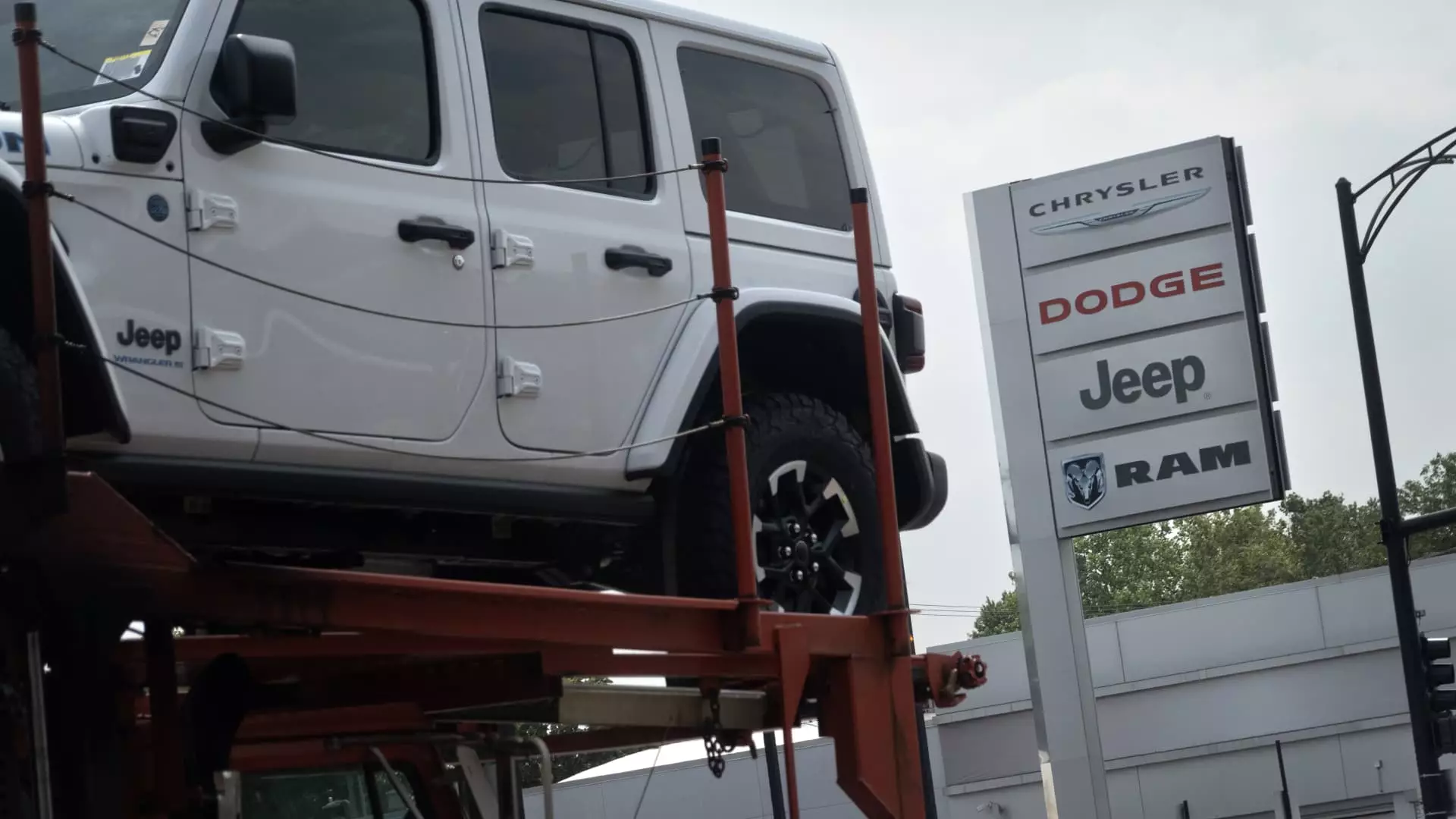The U.S. auto industry has witnessed a 2.9% growth in sales in the first half of the year compared to the previous year. However, concerns are looming over whether this momentum can be sustained throughout the rest of the year. One of the key factors contributing to this uncertainty is the increasing inventory levels and rising incentives amidst a backdrop of economic uncertainty, fluctuating interest rates, and the upcoming U.S. presidential election.
According to Cox Automotive, sales growth is expected to slow down in the next six months, with an estimated total of 15.7 million units, reflecting a marginal increase of 1.3% from the previous year. Interestingly, the growth is now being primarily driven by commercial sales rather than consumer sales, marking a shift from the trend observed in recent years. This altered landscape poses challenges for automakers who have been banking on consumer-driven profits.
While the current situation presents a buying opportunity for consumers who have been waiting to purchase a new vehicle amidst ample supplies and record prices during the pandemic, it spells trouble for automakers. Many automakers had reaped record profits during the high demand and low supply phase, but now face the prospect of declining profits due to the changing market dynamics. Walls Street projections also indicate a bumpy road ahead for automakers in terms of pricing and profitability.
Rental, commercial, and leasing sectors are showing signs of double-digit growth, indicating a shift in the overall industry landscape. Cox Automotive predicts that the retail share of the industry will witness a considerable decline of nine percentage points from the previous year, settling at around 79%. The sales leaders in the first half of the year are anticipated to be General Motors, Toyota Motor, and Honda Motor. Toyota’s consistent growth may enable it to challenge GM for the top-selling automaker spot in the U.S.
On the flip side, some automakers are facing challenges, with Tesla’s sales estimated to plummet by 14.3% and Stellantis expected to witness a 16.5% decline in sales through June. Honda has outperformed Stellantis in U.S. sales during the first half, causing the latter to slip to the sixth position from its previous ranking of fourth. Stellantis CEO Carlos Tavares recently admitted to operational missteps that led to sales declines, excess inventories, and investor concerns.
The auto industry is navigating through choppy waters characterized by rising inventories, growing incentives, and shifting market dynamics. While consumers may benefit from increased choices and favorable prices, automakers are bracing themselves for a period of uncertainty and challenges. Adapting to the evolving landscape and consumer preferences will be crucial for automakers to weather the storm and sustain their growth in the long run.

